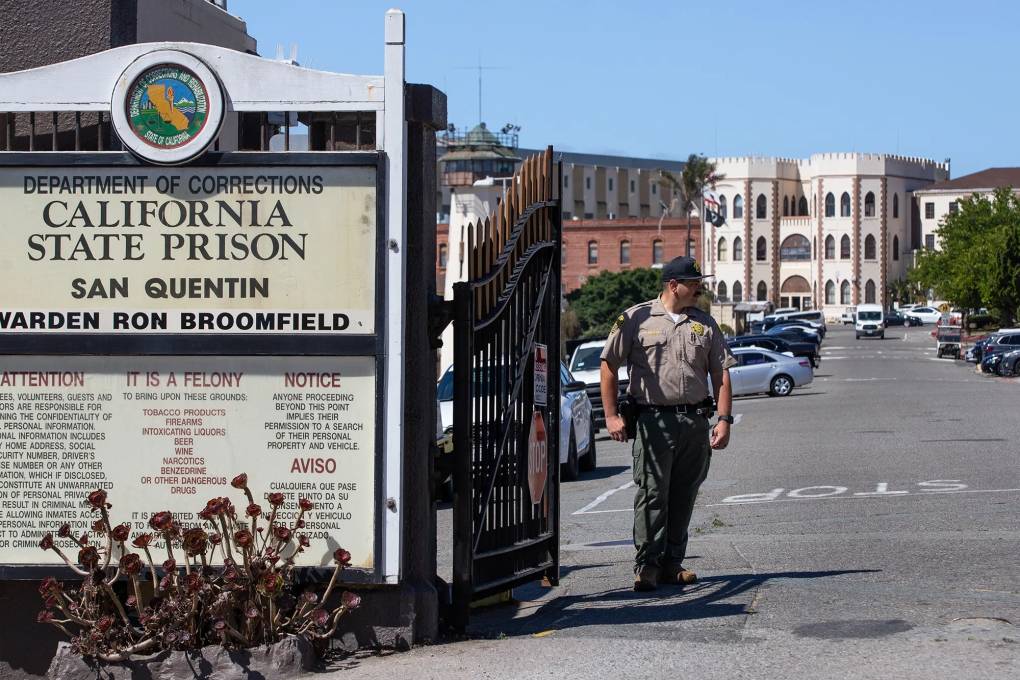
California’s ongoing debate over involuntary servitude in prisons has come to a head with Proposition 6, a proposal aimed at ending forced labor for incarcerated individuals. Proposition 6 has ignited conversations on prison reform and labor rights across the state, as activists and policymakers attempt to garner public support for what could be a monumental shift in California’s approach to criminal justice and incarceration.
Background of Proposition 6
Proposition 6 seeks to end involuntary servitude in California’s prison system, where inmates are required to work, often for minimal or no compensation, under threat of penalty or extended sentences. Historically, the use of forced labor in U.S. prisons has roots in the 13th Amendment to the Constitution, which abolished slavery “except as a punishment for crime.” This loophole has allowed prison labor to continue under legally sanctioned circumstances, leading many incarcerated individuals to participate in compulsory labor.
California’s Proposition 6 aims to address this exception, redefining the nature of prison labor in the state. If passed, it would make California one of the first states to ban forced labor for prisoners, aligning its laws with modern human rights standards. Advocates argue that Proposition 6 would help restore dignity to incarcerated individuals by recognizing their labor rights and ending what they view as a vestige of slavery within the criminal justice system.
Arguments in Favor of Proposition 6
Supporters of Proposition 6 believe that requiring prisoners to work under coercion constitutes a form of involuntary servitude that has no place in a progressive society. They argue that the current system exploits vulnerable populations, predominantly people of color, by enforcing labor that generates revenue for the state or private companies. Advocates contend that forced prison labor creates a financial incentive for maintaining high incarceration rates, contributing to what some describe as a “prison-industrial complex.”
Moreover, proponents highlight that forced labor in prisons fails to equip individuals with marketable skills that would aid in their rehabilitation and reintegration into society upon release. Instead, they argue, the system perpetuates a cycle of poverty and recidivism, as prisoners often lack sufficient job skills and face barriers to employment. Supporters of Proposition 6 argue that, by eliminating involuntary servitude, California can refocus its prison system on rehabilitation and reducing recidivism.
Economic Implications of Prison Labor
One of the central points of contention surrounding Proposition 6 is its economic impact. Currently, California’s prison labor programs generate significant revenue, with prisoners performing essential services, such as manufacturing license plates, firefighting, and agricultural work. These labor programs provide low-cost services to the state, saving millions of dollars annually. Critics of Proposition 6 fear that ending involuntary prison labor could place a financial burden on the state as it seeks to replace the cheap labor currently sourced from inmates.
Additionally, certain government programs rely on prison labor to function efficiently. For example, the California Department of Forestry and Fire Protection (Cal Fire) has utilized inmate firefighters for years. Inmates working on fire crews earn a fraction of minimum wage but contribute to combating wildfires that threaten communities and natural resources. Supporters of prison labor programs argue that these jobs offer inmates meaningful work and help to reduce their sentences, presenting a mutually beneficial arrangement for the state and incarcerated individuals.
The Moral Debate Over Forced Labor
The ethical arguments surrounding Proposition 6 delve into the fundamental rights and dignity of incarcerated people. Opponents of involuntary servitude assert that no person, regardless of their criminal background, should be forced into labor under threat of punishment. They believe that prison labor should be voluntary, with fair wages and safe working conditions guaranteed for all workers, whether incarcerated or free.
In many ways, the debate mirrors broader societal discussions about human rights and labor equity. Advocates for Proposition 6 argue that eliminating forced labor in prisons is a step toward achieving a more humane and equitable justice system. They assert that people in prison should have the same protections against exploitation as any other worker. Furthermore, they believe that treating prisoners with dignity and respect, including paying fair wages, will aid in rehabilitation by fostering self-respect and accountability.
Opposition to Proposition 6
Critics of Proposition 6 argue that eliminating involuntary servitude could hinder prisoners’ work opportunities, as facilities may reduce available jobs to avoid additional costs. They claim that such work programs offer prisoners a productive way to spend their time, incentivize good behavior, and contribute to skills development. Additionally, many argue that prison labor programs provide a form of restitution to society, as inmates work to “pay back” for the crimes they committed.
Some opponents also worry that Proposition 6 could lead to unintended consequences, such as a decrease in prison employment opportunities or reduced funding for rehabilitation programs. With prison labor generating revenue for state-run facilities, the removal of involuntary servitude could create budget shortfalls that affect other aspects of the prison system, including education and vocational training.
The Future of Prison Reform in California
Proposition 6 is part of a broader trend across the United States, where states are re-evaluating prison labor practices and considering reforms aimed at reducing mass incarceration and improving conditions for incarcerated individuals. Several states have introduced similar measures to ban forced labor in prisons, reflecting a shift in public attitudes toward the criminal justice system. For example, in 2020, Colorado became the first state to remove language permitting involuntary servitude as a punishment from its state constitution.
If passed, Proposition 6 could set a precedent, encouraging other states to follow suit and reconsider the role of labor within their prison systems. For California, this move could lead to a reevaluation of how prison labor programs operate, potentially paving the way for new models that emphasize fair pay, voluntary participation, and skills development.
Conclusion: Proposition 6 as a Catalyst for Change
The debate over involuntary servitude in California’s prisons is complex, with significant moral, economic, and social implications. Proposition 6 is more than just a referendum on prison labor—it’s a pivotal moment in the state’s approach to criminal justice reform. Supporters believe it offers an opportunity to humanize the prison system and treat incarcerated individuals with dignity, while opponents argue that it could disrupt vital state services and increase costs.
As California voters prepare to make their decision, Proposition 6 serves as a reminder of the ongoing need for reform within the U.S. prison system. Regardless of the outcome, the campaign surrounding Proposition 6 has sparked critical conversations on prison labor, human rights, and the role of rehabilitation in the justice system. For many, Proposition 6 represents a crucial step toward addressing systemic issues that have long impacted incarcerated populations and reshaping how California defines justice and fairness in its prison system.
image credit – Semantha Norris/CalMatters


